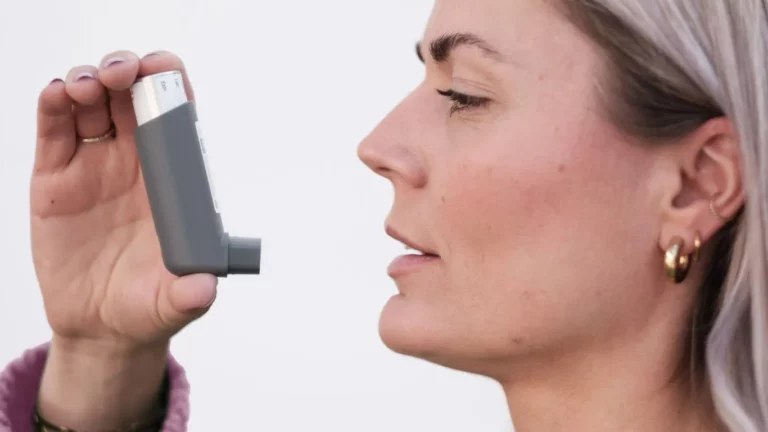Can Mold Exposure Cause Asthma? – A Detailed Guide
Ever wondered if mold exposure could actually lead to asthma? If you’re concerned about your respiratory health and indoor air quality, let’s dig into this together to uncover the connection between mold and asthma!

What is Mold, and Why Does It Matter?
Mold is a type of fungus that thrives in damp, warm environments. Think bathrooms, basements, and anywhere with poor ventilation. While mold might seem harmless (besides being gross), its spores can have a big impact on your health.
When mold spores are inhaled, they can irritate the respiratory system. For some, this irritation might just mean a runny nose or itchy eyes. But for others—especially those with respiratory issues—mold exposure can be a much bigger deal.
Can Mold Exposure Actually Cause Asthma?

1. Mold as a Trigger
Mold spores are a common allergen, and for people with mold allergies, exposure can lead to inflammation in the airways. Over time, chronic exposure may lead to more serious respiratory conditions, including asthma.
2. Impact on Children
Studies show that young children exposed to moldy environments are at a higher risk of developing asthma. Their developing immune systems are more vulnerable to environmental triggers, making early exposure particularly risky.
3. Occupational Risks
Certain jobs—like farming, construction, or working in damp buildings—expose people to higher levels of mold. Prolonged exposure in these settings has been linked to asthma development.
4. Pre-existing Conditions
If you already have asthma or allergies, mold exposure can make your symptoms worse. For some, this might mean more frequent asthma attacks or increased reliance on medication.
How to Tell If Mold is Affecting Your Health

Mold exposure doesn’t affect everyone the same way, which can make it tricky to diagnose. Here are some common signs that mold might be messing with your health:
- Persistent coughing or wheezing
- Nasal congestion or sinus infections
- Shortness of breath or tightness in the chest
- Itchy eyes, nose, or throat
If these symptoms get worse when you’re at home (or in a specific place), mold could be the culprit.
Preventing Mold-Related Asthma
1. Keep Things Dry
Mold thrives in moisture, so make sure to fix any leaks and use a dehumidifier in damp areas like basements.
2. Ventilate Properly
Open windows or use exhaust fans in high-moisture areas like the bathroom or kitchen.
3. Regular Cleaning
Clean mold-prone areas (like shower curtains and tile grout) regularly with a mold-killing solution.
4. Monitor Humidity Levels
Keep indoor humidity below 50%. A hygrometer can help you keep track.
5. Use Air Purifiers
HEPA air purifiers can help reduce airborne mold spores.
When to Seek Help

If you suspect mold is affecting your health, don’t ignore it. Talk to your doctor, especially if you or your family members are experiencing persistent respiratory symptoms. They might recommend allergy testing or an evaluation for asthma.
Additionally, consult a mold remediation expert to assess and address any mold issues in your home.
Conclusion
Mold exposure isn’t just an annoying household problem—it can have serious effects on your respiratory health. While not everyone exposed to mold will develop asthma, it’s a risk factor you don’t want to ignore, especially if you’re already prone to allergies or respiratory issues. Stay proactive about keeping your home mold-free, and don’t hesitate to seek professional help if needed.
Appendices
References
- Centers for Disease Control and Prevention (CDC). (2024). Mold and Indoor Air Quality. Read Article
- American Lung Association. (2023). How Mold Affects Health. Read Article
- National Institutes of Health (NIH). (2024). Mold-Related Health Effects. Read Article
FAQs
- Can mold exposure cause permanent asthma? Mold exposure can contribute to asthma development, especially with prolonged exposure, but seeking medical attention early can help manage symptoms effectively.
- How can I test if there’s mold in my home? You can purchase mold testing kits or hire professionals to assess and identify mold problems in your home.
- Can air purifiers remove mold spores? HEPA air purifiers can help reduce airborne mold spores, but they won’t eliminate mold growing on surfaces.
- Are all types of mold harmful? Not all molds are harmful, but some, like black mold, are more toxic and can cause significant health issues.
- What’s the fastest way to get rid of mold? Use a mold-killing solution (like diluted bleach) and ensure the area is well-ventilated and dried thoroughly.
Disclaimer: The information provided is for educational purposes only and is not a substitute for professional medical advice. Consult a healthcare professional for personalized care and treatment.

Bianca Nala is a compassionate Nurse Practitioner with a strong background in primary and respiratory care. As a health writer for Healthusias.com, she combines her clinical expertise with a talent for clear, relatable storytelling to help readers better understand their health. Bianca focuses on topics like asthma, COPD, chronic cough, and overall lung health, aiming to simplify complex medical topics without losing accuracy. Whether she’s treating patients or writing articles, Bianca is driven by a single goal: making quality healthcare knowledge accessible to everyone.







